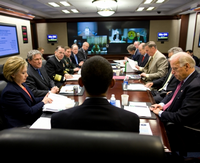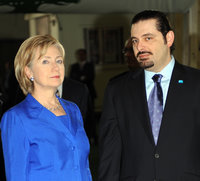
Compared to their predecessors of three or four decades ago, U.S. national security officials are thinking in new terms, about new categories of threats. To an unprecedented degree, they must monitor the social, political, economic and psychological trends and processes that will determine the security environment in the years ahead. The kinds of things they are likely to worry about include the factors that will encourage Pakistan to take more aggressive action against militants or impede it from doing so; the conditions under which narco-violence could threaten the stability of Mexico; the likely lifespan of Tehran’s theocracy; the causes and […]




